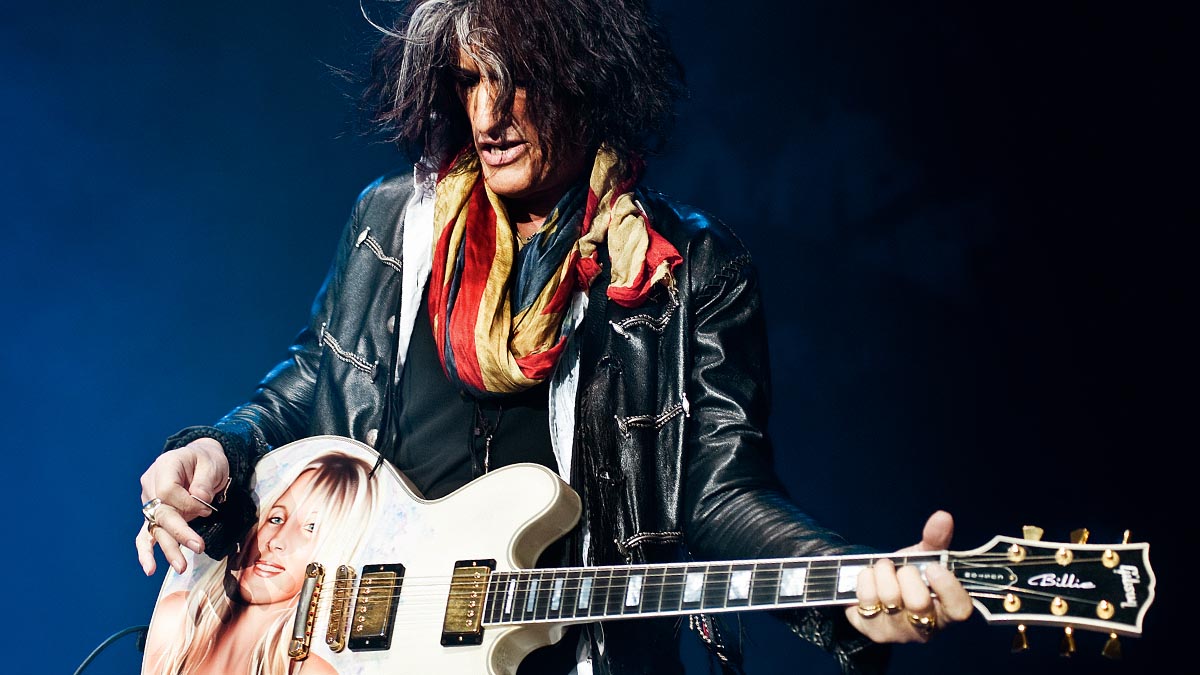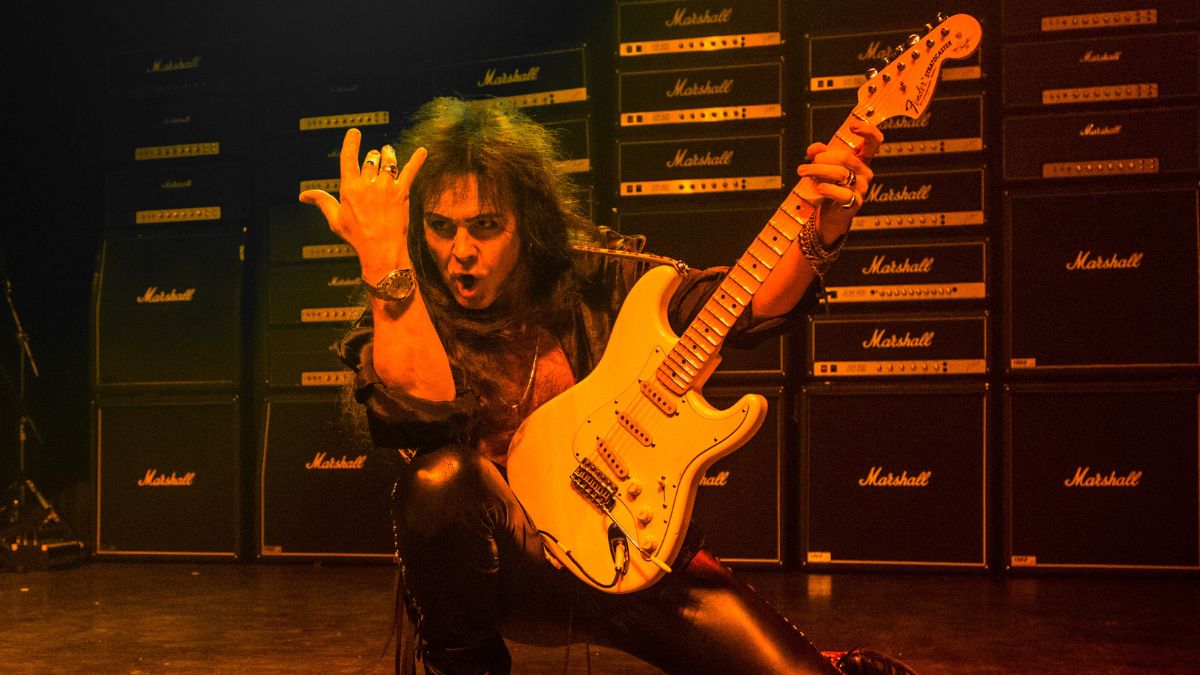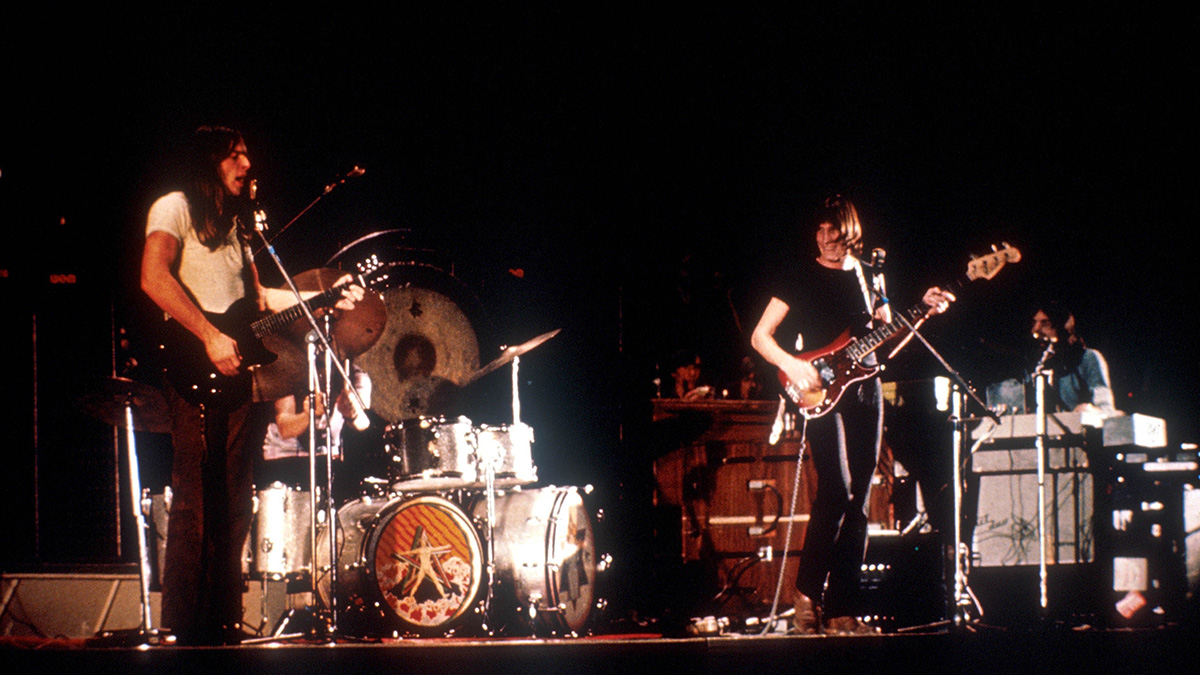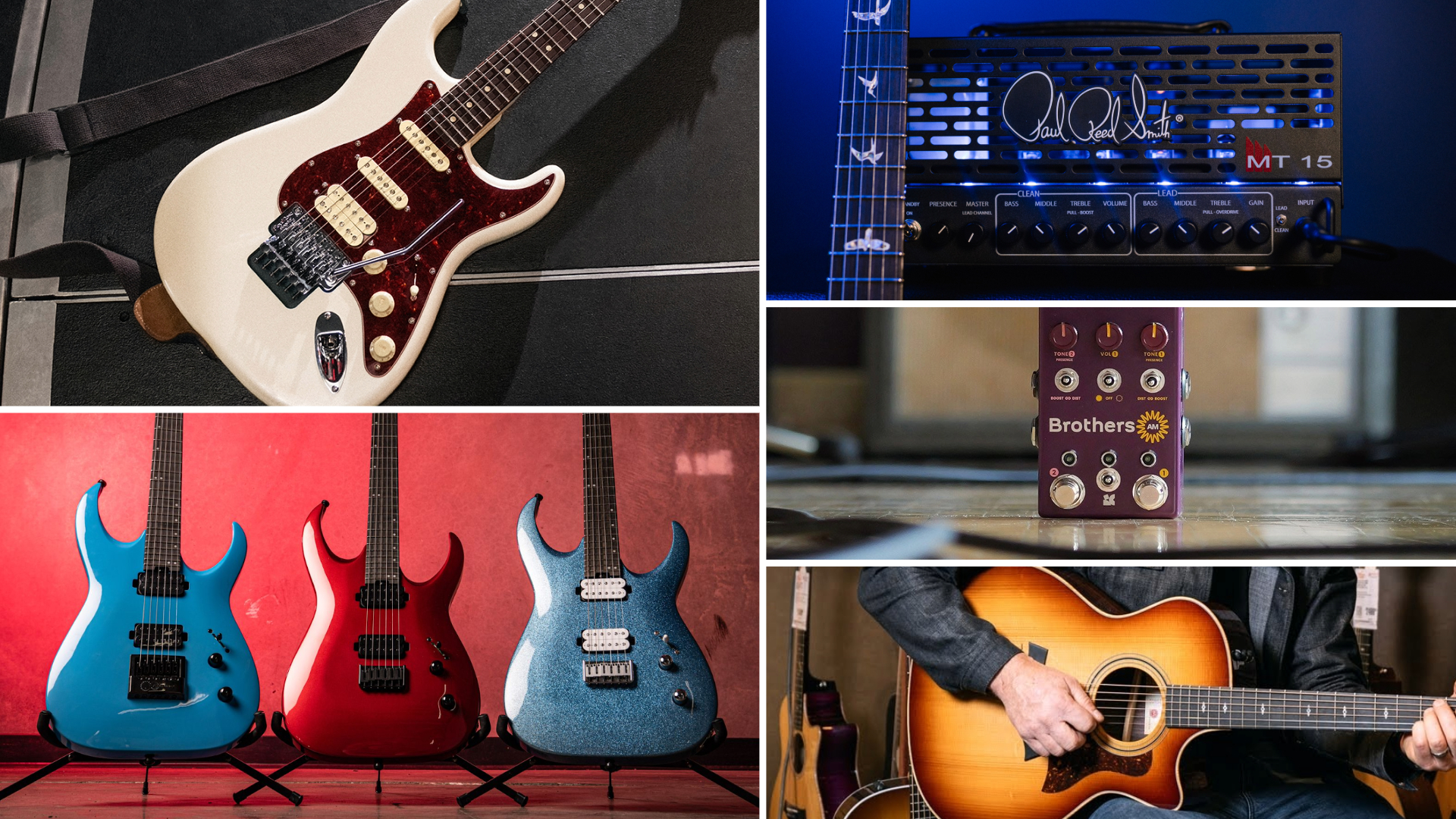Starr Power: Charlie Starr Discusses Blackberry Smoke's Stellar New Album, 'Find a Light'
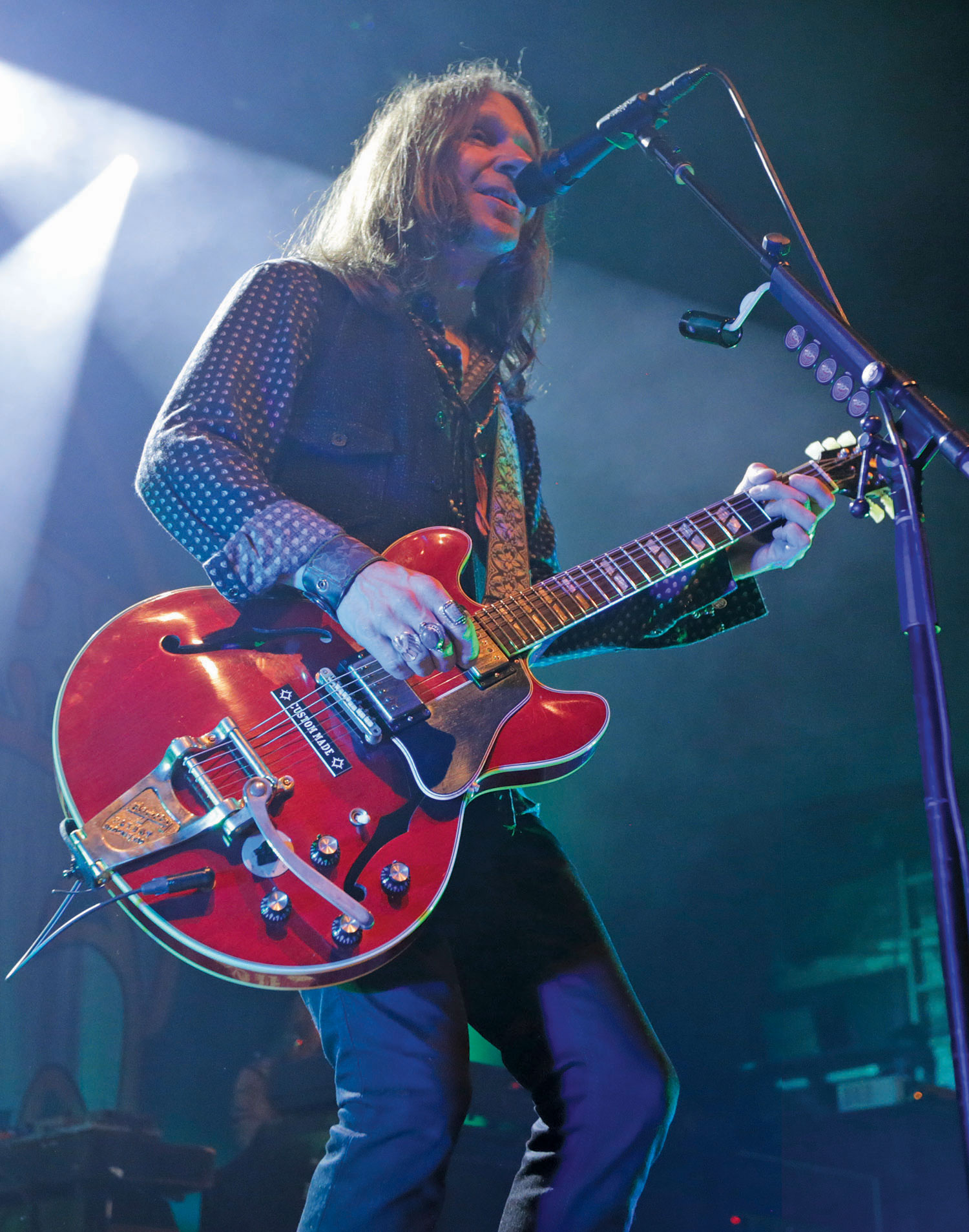
When Guitar World catches up with Charlie Starr, the Blackberry Smoke singer and guitarist is in Charlotte, North Carolina, and in good spirits. The previous night’s gig, in nearby Greensboro, was the kickoff to the band’s tour in support of their new album, Find a Light, and Starr is excited about finally getting out and playing the new material for fans.
Of course, there’s always the question of just how much new material a band that is six albums and close to 20 years into their career can get away with performing.
“It’s always funny to start a tour for a new record, because we wanna play the entire thing,” Starr says. “And fans, you don’t know if they’ll be cool with that or not, ’cause they’ve got their favorites and stuff. And it’s like, ‘What do you take out of the set list?’ ”
In the end, Starr reports that the band decided to go with three new ones—Find a Light opener “Flesh and Bone,” a dark, churning rocker with a coiled verse that explodes into an anthemic chorus; the Tom Petty–esque (and deliberately so, as Starr will later explain) “Best Seat in the House”; and the laidback acoustic picker “Medicate My Mind”—which seemed like a good compromise. “But of course, on social media this morning there was the one dude who was like, ‘Why aren’t you playing all the new songs?’ ” Starr says with a laugh. “And it’s like, ‘Settle down, fella, it’s only the first night. We’ll get around to it!’ ”
He laughs again. “You can’t fucking win, you know? Not that I’m complaining…”
These days, Starr doesn’t have much to complain about. Since releasing their debut album, Bad Luck Ain’t No Crime, in 2004, Blackberry Smoke have built a name for themselves as one of the hottest and most exciting acts around, lauded by fans (their last two efforts, 2015’s Holding All the Roses and 2016’s Like an Arrow, hit Number One on Billboard’s Top Country Albums chart) and peers (they’ve shared recording studios and stages with everyone from Gregg Allman to George Jones to former Black Crowes vocalist Chris Robinson) alike. In the past few years there’s been plenty of talk about rock and roll—and guitar-heavy rock and roll in particular—being on the decline, if not utterly dead.
But Blackberry Smoke’s electrifying amalgam of country, blues, roots, soul and classic rock is garnering big audiences across a wide spectrum of genres. And what’s more, they’re doing it with a sound that boasts some of the most hot-shit, high-wire guitar shredding around. “I’m a guitar geek, and we’re a guitar band,” Starr says proudly. “Hell, I’ve been reading Guitar World since I was 11 years old!"
Get The Pick Newsletter
All the latest guitar news, interviews, lessons, reviews, deals and more, direct to your inbox!
As for whether he believes fans see his band as belonging more to the country or the rock worlds? “I don’t know,” Starr admits. “I mean, think about this: What type of radio station would play Lynyrd Skynyrd’s Second Helping if it were released now? Would they get played on country radio or rock radio? It’s a little hard to figure out. So I quit trying.”
As far as he’s concerned, “We’re just a rock and roll band from Georgia…that just occasionally plays a country song! But really, we’re just doing what we do, and we don’t worry about any of the other stuff.”
When it comes to “just doing what you do,” would you say you go into each new Blackberry Smoke album with a certain intention?
The only intention there ever seems to be is to continue what we’ve got going, you know? To continue to evolve and let the music go where it’s gonna go, rather than just creating a commodity or another product to sell. I mean, the bands that we grew up listening to and loving so much—Zeppelin and the Stones and Aerosmith and the Allman Brothers and Lynyrd Skynyrd— that’s the way they approached it. They just kept growing musically, and that’s what we always want to do. It baffles me how some artists can just follow a formula, like in those videos you see online where someone takes two songs from a certain band and then plays ’em side by side and it’s exactly the same shit. It’s like, “Okay, that’s very formulaic…” I guess it works, because a lot of those bands have sold millions and millions of records. But how boring, you know?
This album opens with one of the heavier songs you guys have recorded, “Flesh and Bone.”
Yeah. I think this record, the heavy songs are even heavier, and the laidback songs are even more laidback. I love going from one extreme to another in that way. It keeps it really fresh. “Flesh and Bone,” how that one came together was I was sitting at home fiddling around on a guitar that was tuned down a whole step to open F. That instantly creates this big, heavy, woof-y thing. And the song came from that two-note riff.
One thing that’s interesting about this album is that you co-wrote several songs with former Buckcherry guitarist Keith Nelson.
Keith and I have been friends for 25 years or so. I met him back in the late Nineties, when Buckcherry were on their first southeastern tour. I saw ’em at a little bar in Atlanta and I was knocked out by how great they were. And we just became friends, because we’re both guitar nerds. At some point he left Buckcherry, and he called me one day and he said, “Hey man, you wanna write some tunes? And I said, “I would love to. That’d be great.” Because we’re coming from a very similar place. Not only as guitar players but the way that we grew up. There’s a lot of parallels there. So we had a little long-distance writing session and before I knew it we had written six or eight songs. And then four of ’em I just took for myself! I said, “These would be really great Blackberry Smoke songs…”
It’s something of an unusual pairing— I don’t think most people would assume a guy from Blackberry Smoke and a guy from Buckcherry would be coming from the same place, musically.
I guess maybe it doesn’t seem so obvious. But, you know, we both love Keith Richards and Mick Taylor. And Joe Perry and Brad Whitford. And Malcolm and Angus Young. Maybe I might lean a little toward Duane and Dickey…but actually Keith does as well. I guess appearances can be deceiving at times.
There’s a lot of different sounds and styles on Find a Light, from heavy rock to blues to bluegrass to folk and beyond. As Blackberry Smoke’s primary songwriter, where do all these influences come from?
I grew up in Lanett, Alabama, which is about 85 miles southwest of Atlanta, and I was initially playing bluegrass and traditional country music. Because that’s what my dad played. And my first musical influence was watching him play the guitar and sing songs at home. And he loved only that music. No rock and roll. No jazz. No r&b. No blues. Just bluegrass and traditional hillbilly music. So I wanted to do that pretty much immediately. At five or six years old, I wanted his guitar—every time I saw it I had to put my hands on it. He recognized that, and he was never too busy to play for me. And I had favorites at that point, things like “The Wreck of the Old ’97,” “Your Cheatin’ Heart,” “Blue Moon of Kentucky,” all that stuff. Then when I was six he bought me my own guitar, taught me the cowboy chords and away I went.
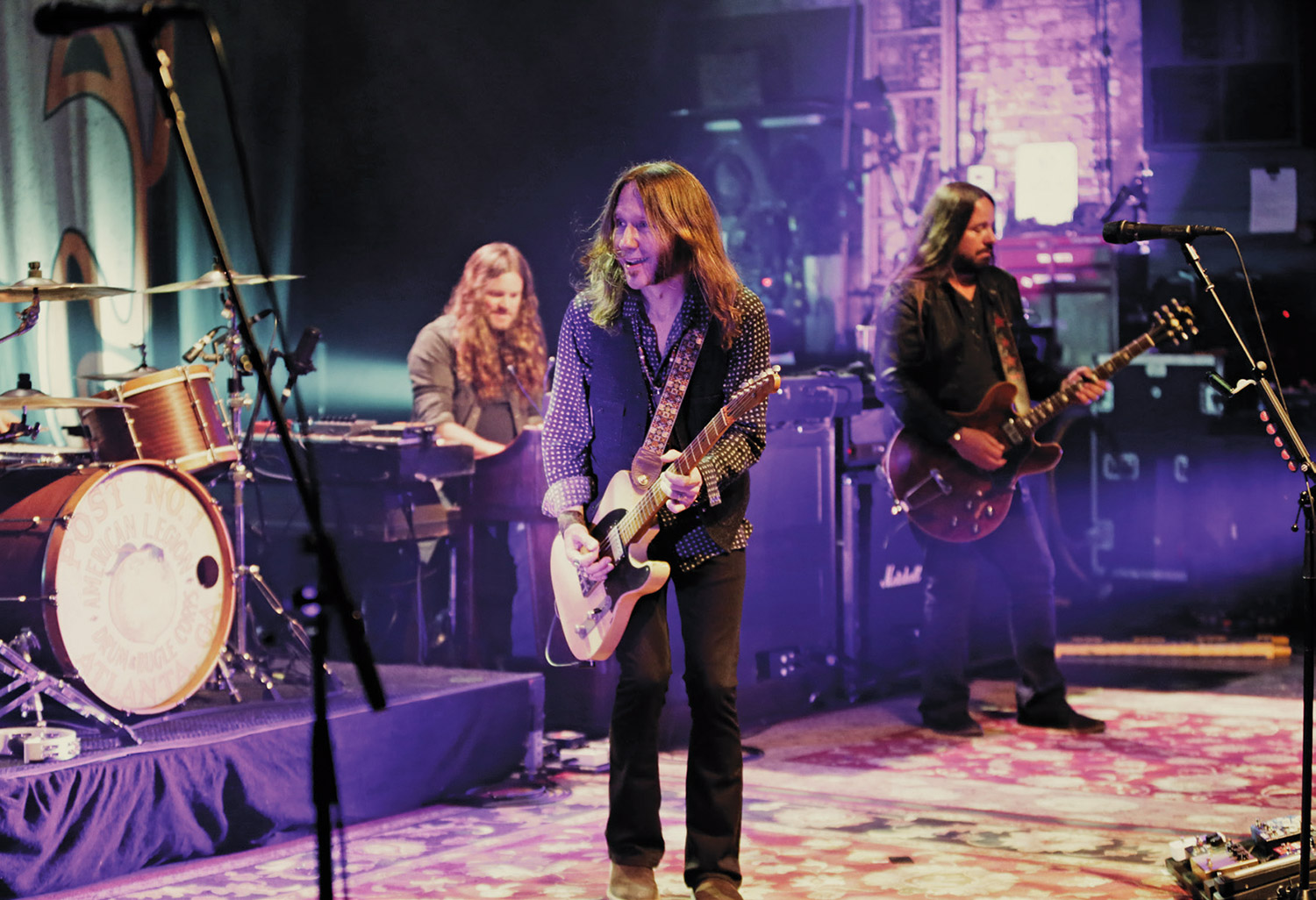
So how did you come to rock music?
Well, at about 11 years old I started to realize, Hey, none of my friends like this stuff! They all like Black Sabbath! [laughs] So I adapted. I was like, Okay, I’m still gonna play the guitar, but I was grabbed in a big way by Led Zeppelin, Black Sabbath, Aerosmith, the Stones, the Allman Brothers, Lynyrd Skynyrd… all of that was added to the equation.
But you know, another thing was that, around that same time I also remember hearing “Honky Tonk Women”—really hearing it—and thinking, This is a country song. This is a lot like what my dad does, only it’s louder. [laughs] But the elements were there. It was a three-chord song, maybe four, with the country harmony. So it started to make sense to me that it was all coming from the same place.
Onstage, you cover songs from a lot of different types of bands—everyone from Lynyrd Skynyrd and Little Feat to Guns N’ Roses and Black Sabbath. How do you approach these tunes?
It’s just simply covering the songs we love. You know, it can be as simple as the iPod is shuffling on the bus and all of a sudden Little Feat’s “Fat Man in the Bathtub” comes on and somebody goes, ‘Oh my god, we need to cover this!” That kind of thing happens quite often. Or a couple of years ago in an interview somebody asked our keyboard player Brandon [Still], “What’s your favorite Sabbath song?” And he said, “Fairies Wear Boots.” And it’s like, ding ding ding! “We need to cover ‘Fairies Wear Boots’!” So we did. We played it at a show with Gov’t Mule, and when I was walking offstage their bass player, Jorgen [Carlsson], he goes, “That is my shit right there!” And I said, “You know, that song, because of the time signature changes and the way it swings, when it gets into the verse, it could be an Allman Brothers song…” And Jorgen says, “Yeah. But it’s better!” [laughs]
You’re a band that straddles different genres. When you’re playing to rock crowds as opposed to country crowds, do you find they relate to your lyrics differently?
I don’t really think about that. I know a lot of people where there’s common ground, where we all meet in the middle, but it seems to me the media ignores that cross-section of people, which is a damn shame. And Find a Light, it’s not a concept record, but a lot of the lyrics deal with the state of the union, as it were. It’s just downright scary right now, you know? Looking back to when I was a teenager, everything just seemed so…safe, for lack of a better way to put it. And then you add to the equation the fact that the election was such a circus, and the country is so polarized left and right… But I don’t want to get political. When it comes to the record, a lot of what the lyrics are saying is, “Hey, in a world where you wake up every day and turn on your television or open your internet browser and you’re basically beat over the head with bad news, the only thing you can do is find some light in it all.”
So what it comes down to is I just write what feels correct. But that’s not to say I always write what feels comfortable. Because it’s not always so comfortable to write a song like “Seems So Far,” which deals with, “Hey, I’m getting old!” Or “Flesh and Bone,” which is about the things I used to love so very much—drinking and smoking and taking drugs. Livin’ the rock and roll lifestyle. Because it’ll kill you. It’s like god’s cruel joke—all this stuff that’s so much fun, it’s all horrible for you. Anything that’s fantastic, it sucks! [laughs] But I made a choice years ago to try and live a long time, you know? And to feel good while doing so.
Were there times earlier in your career when you were living more on the edge?
Yeah, for years. When we started this band we were living the life and loving it. Well, not always loving it—you create problems for yourself when you’re a shit bag, you know? We used to fight a lot more. Especially when you add hangovers and different types of drugs to the equation. And that’s fine—I’ve got great memories of those times. But then I also have some horrific ones. But nothing really seemed to start happening for us in a good way until we got on course correctly.
You’ve had the opportunity to play with so many different artists over the years. Is there anyone you’ve wanted to collaborate with but haven’t yet?
We always wanted to make a connection with Tom Petty. Unfortunately that time has come and gone. But funny thing, man, there’s a song on the record, “Best Seat in the House,” that Keith Nelson and I wrote, and it’s very much influenced by Tom Petty and the Heartbreakers. It’s very obvious, with the 12-string Rickenbacker and everything. That’s the music and the sound that was the soundtrack to our youth. Think about how lucky we were with rock and roll radio back then. We had Mellencamp, Springsteen, Petty. I mean, we got those songs and not…Beyoncé. [laughs]
But anyway, when we were tracking “Best Seat in the House” I actually thought, This is very Petty…but in a good way. But I didn’t know if it should go on the record. And then we finished what we felt like was the take, and we all walked into the control room and people start to pick up their cellphones. And it’s like “Uh oh. Tom Petty is in a coma.” It was that night. And then a few hours later he died. So I thought, You know what? This is such a strange coincidence; this song has to go on the record. As sort of a tribute to Tom Petty. So that was just surreal. But yeah, Tom Petty is a guy I would have loved to have done something with.
What gear did you use on the new record?
I played a ’63 Fender Esquire on a lot of the songs. That was definitely a favorite for the record. There was a ’65 Gibson ES-330, which you can hear on “Run Away from It All,” a couple of Gibson Les Paul doublecut Juniors—a ’58 and a ’59—and a ’58 triple-pickup Les Paul Custom. For acoustics, I had a couple of old Martins—a 1947 000-18 and a ’66 D-18. Just lots of guitars. And amps, it’s funny—I just read the other day this thing with Eddie Van Halen where he was talking about the 40th anniversary of the first Van Halen record. And he said something like, “I played one amp, my [Marshall] 100-watt, with a slant 4x12, a variac at 89 volts and a Shure SM57. And I played that on every song on the record.”
It’s impressive that you just remembered that off the top of your head.
Well, it was on Instagram! But then I thought, Okay, well, cool. You used one guitar and one amp for your entire first record, which is a classic. And we just made a record and we played probably 40 guitars and as many amps. [laughs] Oh well. What can you do? It’s a disease.
So what were your main amps on Find a Light?
Most of my tracks are a 1976 Marshall JMP 50-watt and a ’59 Fender Tweed Deluxe.
So just two amps. You’re getting closer to Eddie.
Yeah. He had me beat by one!
What about pedals?
I don’t use a lot of pedals, but we use them when they’re needed. This time, I had a Drybell Vibe Machine, a Greer Amps Tarpit Fuzz and a Greer Lightspeed Organic Overdrive. And a fuzz that Echopark makes—the F-3 Chronic Fuzz. I also had a Fulltone Tube Tape Echo. I used that and an [Echoplex] EP-3 on different songs, because they get a different thing. But some tape echo is always necessary if you’re gonna make a proper record!
How did you and your co-guitarist, Paul Jackson, work out your guitar parts on Find a Light?
We always get together and work up the harmony things, but otherwise it kinda works itself out. It’s just whoever feels the most comfortable with a solo section or with a part. And when I write the songs I make pretty elaborate demos at home. So the template is already there.
Earlier you also said that you were into some metal, like Black Sabbath. Just out of curiosity, what other metal artists do you like?
Well, I remember when I was young, probably about 12 or so, one of my best friends got Master of Puppets on vinyl. I went over to his house and he put it on, and I had never heard any Metallica before—that was not music that would be in my sister’s or my parents’ record collections, you know? And it wasn’t on the radio. So it was completely foreign to me. And I was terrified! I’d never heard music that was that fast and scary. You listen to it now and it’s quite tame, comparatively speaking. But back then I was just knocked out. It almost bothered me. It was menacing. And I loved it. Instantly. Any time music strikes a chord in you like that it just makes an impact, whether it’s scary or beautiful or heart-wrenching or whatever. But I couldn’t get enough of it. So I fell in love with Metallica. And then this friend also had the Peace Sells record, and Reign in Blood. So it was like a progression. He was taking me to speed-metal school. And I was loving every minute of it.
What about punk? Did you ever get into that world?
You know, we all go through our punk-rock phase, with the Sex Pistols and the Clash and the Ramones and the MC5 and the Stooges. I got into all that as a young teenager, but then I got out of it pretty quickly. I thought, I’m not good at this. I’m not a good punk.
But, funny thing, now that I’m in my 40s I got really into D.C. hardcore. Stuff like Bad Brains and Minor Threat. I got the first Bad Brains on vinyl and I put it on at home. It was probably 10 a.m., and I have a four-year-old son and a wife, and I put it on and it starts, and from the other room I hear my wife yell, “What the fuck are you doing?” [laughs] I was like, “I don’t know! I don’t know what I’m doing! But I love it!” Ah, the midlife crisis…
Well, there are worse ways to have a midlife crisis than listening to Bad Brains…
[laughs] I know! But what can you do? I was not exposed to that thing at a young age. I was late to the party!
Rich is the co-author of the best-selling Nöthin' But a Good Time: The Uncensored History of the '80s Hard Rock Explosion. He is also a recording and performing musician, and a former editor of Guitar World magazine and executive editor of Guitar Aficionado magazine. He has authored several additional books, among them Kurt Cobain: Montage of Heck, the companion to the documentary of the same name.




